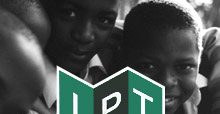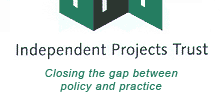
Independent Projects Trust
Teenagers Action
Aids Project
BACKGROUND
Research has shown that as early as 1990 KwaZulu-Natal (KZN) had a HIV/AIDS prevalence twice that of the national level: 1.6% vs 0.76%. Since then KZN has maintained approximately 10% higher prevalence compared to South Africa nationally. In addition the data shows that those individuals who are under 25 years of age are more vulnerable to HIV/AIDS than other age groups. Demographics show that 64.6% of the population in KZN is younger than 25 years old. The high proportion of young people in KZN is one of the causes for a higher-than-average HIV prevalence in the province (Smith, 2000). This research highlights the need for HIV/AIDS intervention programmes in KZN that focuses on issues relevant to young people.
Considering that most young adults are likely to engage in sexual activities it is essential that they receive accurate information about sexual behaviour and HIV/AIDS. Every effort needs to be made to educate young people in KZN on how to adopt a healthy and safe life-style in an attempt to reduce the risk of becoming infected with HIV. Sexual behaviour cannot be separated from the risk of contracting HIV and it is therefore essential that any HIV/AIDS intervention programme include workshops on sexual behaviour.
PROGRAMME
In response to the above concerns, the TAP programme aims to educate young adults, in a creative and interactive way, about their sexual development and HIV/AIDS. It hoped that the outcome will be a generation of teenagers who are positive about their futures because they know how protect themselves against, and fight, the life destroying HIV/AIDS epidemic. After completing the programme, a TAP Club will be established in each school to ensure that HIV/AIDS remains an important issue to be confronted by the school and its learners. Each member, including a volunteer staff member, will be trained in basic HIV/AIDS counselling skills and trauma debriefing skills so as to provide ongoing supportive services to the school community.
The target group will be young adults in high schools that have limited access to updated information about issues such as HIV/AIDS.


